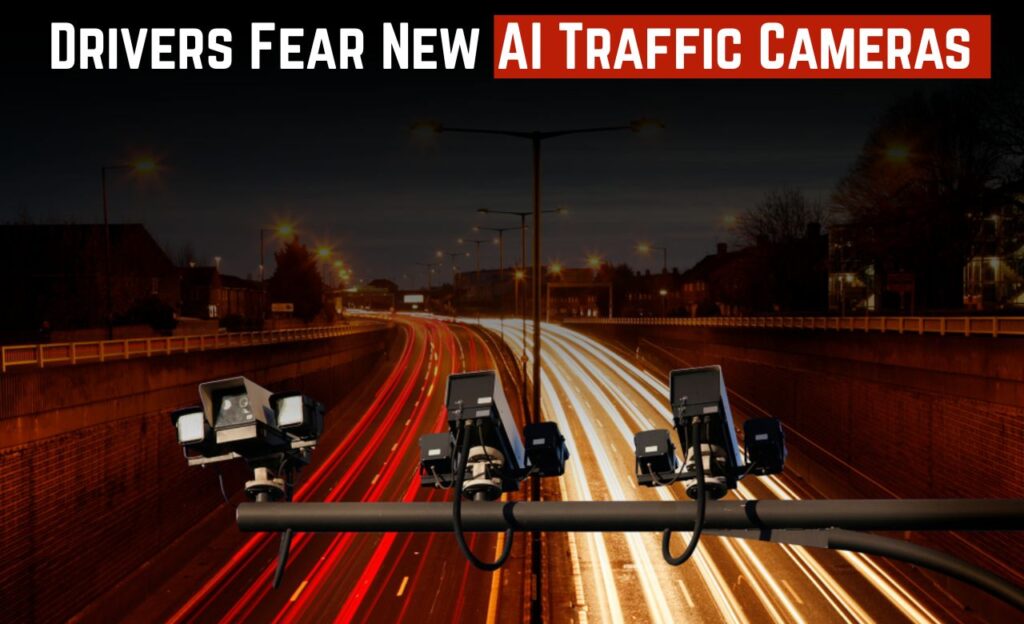AI Traffic Cameras Spark Privacy Fears – Artificial Intelligence (AI) is reshaping traffic enforcement in Australia, and Queensland is at the center of this transformation. The state has introduced AI-powered traffic cameras designed to detect violations such as using mobile phones, not wearing seatbelts, or speeding. These advanced systems can scan thousands of vehicles daily with remarkable accuracy, reducing the need for human monitoring. Authorities believe this will help curb road accidents, save lives, and create safer driving conditions across the state. However, a recent Queensland report has raised significant concerns about the extent of surveillance these cameras enable. Many Australians fear their personal data is being collected and stored, sparking debates about privacy, government overreach, and the potential misuse of sensitive information. As the rollout expands, the clash between improved road safety and the right to privacy has become a heated national conversation.

Why Queensland’s AI Cameras Are Sparking Fears
The report highlights that AI cameras can do more than just identify traffic offences — they are capable of gathering large amounts of visual and behavioral data. This includes details of drivers, passengers, and vehicle patterns. Critics argue that such extensive data collection could lead to long-term tracking and profiling, going far beyond the intended purpose of road safety. While the government assures citizens that the technology is strictly for traffic enforcement, concerns remain about how securely this information is stored and who might access it in the future. With cyberattacks and data breaches becoming common worldwide, Australians worry about the risks of personal details falling into the wrong hands. Civil rights groups have called for stricter rules to limit data usage and prevent the cameras from becoming tools of mass surveillance.
 License Swap Shock – Migrants in Australia Could Be Forced to Take Driving Test Under New Rules
License Swap Shock – Migrants in Australia Could Be Forced to Take Driving Test Under New Rules
Balancing Road Safety with Privacy Rights
Supporters of AI traffic cameras emphasize the clear benefits of improved compliance with road laws. Pilot programs in Queensland have already shown a decline in mobile phone usage while driving and higher seatbelt compliance. These changes translate into fewer accidents and potentially hundreds of lives saved each year. Yet, this progress comes at a cost — citizens fear that constant surveillance could normalize invasive monitoring. Once established, the technology could be expanded into other areas, raising questions about where the government might draw the line. To maintain public trust, experts suggest that transparent data-handling policies, independent audits, and clear communication are essential. This would ensure that drivers feel protected rather than monitored.
What Experts and Advocacy Groups Are Demanding
Privacy advocacy groups have urged the government to introduce strong safeguards before fully deploying AI cameras nationwide. They recommend limiting the use of data strictly to traffic-related issues and prohibiting cross-departmental sharing. Regular third-party audits and clear expiration dates for data storage have also been suggested as solutions. On the other side, road safety organizations stress that the benefits should not be overshadowed by fear. They argue that saving lives must remain the priority, but acknowledge that a balance must be found to respect individual freedoms.
The Future of AI Traffic Cameras in Australia
The future of AI traffic enforcement in Australia hinges on how Queensland addresses these growing concerns. If lawmakers succeed in creating a strong legal framework that prioritizes both safety and privacy, public acceptance is likely to rise. However, without such safeguards, drivers may continue to view the cameras as intrusive. Other states are watching closely, as Queensland’s handling of the issue will likely influence nationwide adoption. For now, Australians face a critical debate: how to embrace technology that saves lives without sacrificing the very freedoms that define their society.
How are AI traffic cameras impacting privacy concerns for Australian drivers?
 Centrelink Boost from 5 October – Full Updated Payment Rates Announced for Millions of Australians
Centrelink Boost from 5 October – Full Updated Payment Rates Announced for Millions of Australians
They raise alarms due to potential privacy violations and surveillance issues.




